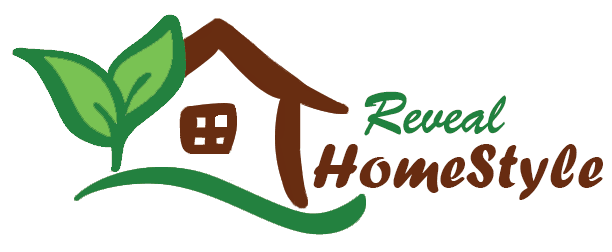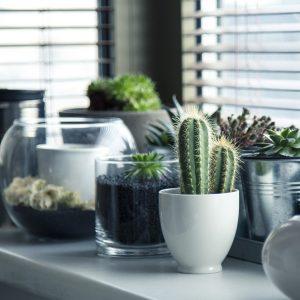Your home is like your haven where you feel safe, secure, and comfortable. However, if you don’t take the right steps, your sanctuary can quickly become unsafe for you and your family. Safety precautions aren’t just limited to keeping your home safe from burglars and the like. Instead, you need to pay close attention to defending your home from more insidious dangers.
Over the past two years, we’ve learned the immense importance of defending ourselves from germs and bacteria. Some of the practices we previously engaged in were incredibly detrimental to our health, and it’s essential to get rid of them to protect ourselves.
Ways to keep your indoors clean
Your daily cleaning routine can save the lives of your loved ones by controlling the spread of bacteria and infectious viruses. Adopting proper cleaning habits, taking precautions, and using suitable materials can make your home ideal for a healthy life. If you’re confused about where to start, we have some tips for you. Keep reading below for some of the best tips to make your home healthy and safe.
Purify the environment
Although there are various areas to consider when cleaning your home, focusing on purifying the environment is vital. Numerous airborne diseases can affect you and your family if you haven’t maintained a clean internal environment. Furthermore, if you have an unclean environment, your home is more prone to developing mold, mildew, and allergens.
You might need to have an increased focus on purifying the environment if you live in an area with a lot of humidity or pollen. However, it can be challenging to have a clean atmosphere without an air-purifying system with environmental probiotics. Environmental probiotics help keep dust, allergens, pollen, bacteria, viruses, and odors at bay. Installing an environmental probiotics system can be an effective way to breathe fresh, clean air each day. You can easily connect the system to your HVAC system and purify the air around the clock.
Sanitize your kitchen
Kitchens are some of the most troublesome areas in homes, and they can be the prime place for bacteria to grow. There are numerous damp, humid places where mold can thrive too. What makes the kitchen so dangerous is that it’s also where we prepare food, which dramatically increases the chances of contamination. Therefore, you need to pay close attention when cleaning your kitchen.
Countertops are a vital area to consider, and you need to wash them with warm water and soap and then bleach water for deep cleaning. However, avoid adding ammonia in bleach as it can produce harmful chemicals that react with the food. Additionally, it would help if you were extra careful when cleaning stovetops, shelves, microwaves, and ovens.
It is also crucial to maintain a clean sink as it can be the home of germs. Scrub your kitchen sink with a disinfectant every day, and change your sponge frequently to keep bacteria from accumulating. Your sponge can have more bacteria than your toilet, so it’s vital to keep changing it.
Sanitize your family room
Make it a routine to clean your living room frequently, as your living room is the one common place where every member of your house spends their time, so it has to be safe and welcoming. You must clean every high-touch surface, such as light switches, handles, doorknobs, and tables, to keep bacteria away. This step is even more critical in the current scenario, where COVID-19 germs can spread quickly through touching contaminated surfaces.
Furthermore, declutter the area by clearing unwanted stuff from your living room like toys, blankets or extra cushions, shoes, magazines, or paperbacks. Place everything in the right place to keep dust from accumulating. Additionally, if you have kids in the house, place an extra bin for garbage at the side to keep messes at a bare minimum. Make sure to vacuum every nook of your house as nooks and crannies can be a home to bacteria and cause asthma and allergies.
Clean carpets and rugs
Carpets and rugs look beautiful as they add a luxury touch to your home. Furthermore, they give you the much-needed comfort and warmth which hard flooring cannot offer you. However, alongside these qualities, carpets collect a massive amount of dirt and bacteria, which can cause a range of issues. So, you need to clean your carpets and rugs regularly. Vacuum your carpets frequently to avoid allergic reactions. You can also give them a deep clean with carpet cleaners or chemicals, or you can hire a professional carpet cleaner.
If you have a fully carpeted room, you also need to ensure good ventilation. Open the windows for some time and let the fan on for better air circulation to avoid dampness and moisture. Carpets can also require professional cleaning sessions every few months. If you have pets or kids, you might want to schedule cleaning sessions more frequently.
Focus on the bathrooms
It’s no surprise that if you want to keep your home free from bacteria, you need to devote attention to cleaning your bathrooms. Tubs, sinks, floors, and accessories require the most cleaning every day. Make sure to scrub all such areas with heavy-duty cleaning agents thoroughly. Let the solution sit for a few minutes so you can remove all stains, dirt, and bacteria. Furthermore, scrub your toilets properly with disinfectants as it carries a lot of germs.
When you clean your bathrooms frequently, you can avoid limescale buildup and keep mold from developing. Furthermore, such measures can help you keep any unsanitary smells at bay and ensure that your bathroom is always fresh.
Conclusion
For keeping your home completely clean and healthy, develop a habit of daily cleaning. You can involve all the family members and work as a team, to clean everything quickly. It’s also vital to maintain and replace your cleaning products and tools when needed, to prevent germs from spreading. Keeping your home germ-free can benefit your whole family immensely.




